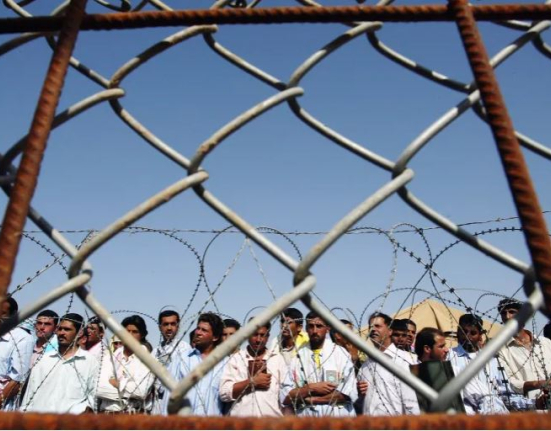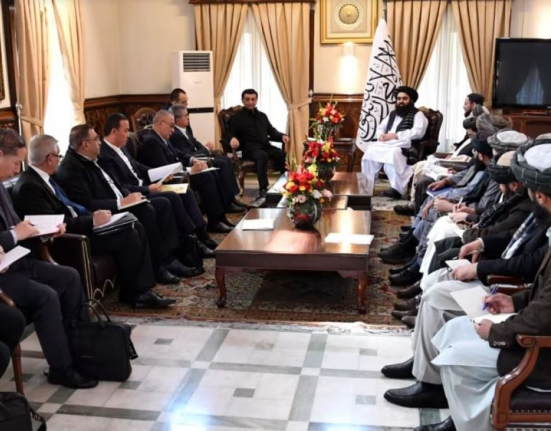By Graeme Smith

Afghanistan is strangely calm in the aftermath of war. Behind the shuttered Canadian embassy in Kabul, where checkpoints used to protect against Taliban attacks, a Taliban fighter now waves traffic past the roadblocks with a lazy gesture.
The quietness of these war-ravaged streets is not the most surprising thing that confronts a Canadian visitor. Even more unusual is the reputation of Canada itself: Once known as a leading donor to Afghanistan, these days Canada has become infamous for blocking aid to desperate people. You almost have to apologize for being Canadian when meeting the exhausted aid workers who are struggling to avert a famine in this stricken country.
The reasons for Canada’s poor reputation are not immediately obvious. On paper, Canada has not abandoned its traditional generosity toward Afghans. The country remains among the largest recipients of Canadian aid, with more than US$100-million allocated this year to address the humanitarian crisis that emerged after the Taliban retookpower in the summer of2021.
The reality is complicated by the fact that Afghans are not suffering from a natural disaster. Droughts and floods have been escalating for years as the climate worsens, but the proximate cause of the economic crisis in this country has been political decisions, including important choices in Ottawa and other Western capitals.
Before the U.S. and its NATO allies withdrew their soldiers, they repeatedly warned the Taliban: Negotiate a peace settlement and avoid storming Kabul – because if you seize power by force, your regime will suffer economic isolation. The Taliban ignored this stark message and restored their draconian theocracy. Afghan women lost many freedoms they had gained in recent years.
Understandably horrified by the Taliban’s actions, Western countries reacted by following through on their threats. They halted development aid, froze Afghan central-banking reserves, hobbled the financial system, and allowed pre-existing sanctions to smother many kinds of public and private business. Combined with the abrupt end of the war economy, this wiped out about a third of the country’s gross domestic product. Within months, the United Nations was calling Afghanistan the scene of the world’s largest humanitarian crisis.
To its credit, Canada joined other countries answering the UN’s appeals for emergency aid, which raised a staggering US$2.8-billion this year. Less impressive was Ottawa’s absence from international efforts to solve the complicated issues that continued driving Afghans into deeper misery. Since January, 2022, the declared aim of U.S. and European donors has been revival of the Afghan economy – not just sending bags of food, but helping Afghans to feed themselves – but Canada has never endorsed that idea.
Canada’s drift away from mainstream Western policy on Afghanistan was most visible on the issue of sanctions. In February, 2022, the U.S. granted the most sweeping exemptions in the history of American sanctions, going far beyond earlier humanitarian carve-outs from the UN and the U.S. Treasury. The new rules allowed commercial activity in Afghanistan and development aid for Afghan state institutions, including support for ministries controlled by the Taliban. The U.S. government was not endorsing the Taliban regime, but wanted to avoid crushing the economy and destabilizing the region.
While other countries such as Britain and Australia also started easing sanctions, Canada did not. In April, 2022, several of Canada’s largest charities sent a letter to the Canadian government asking for leniency. The question went to a parliamentary committee, which recommended in June, 2022, that Ottawa act immediately to make sure that sanctions do not block humanitarian assistance and other basic support for Afghans’ needs.
Officials say that solutions are forthcoming. International Development Minister Harjit Sajjan told The Globe and Mail recentlyabout plans to introduce changes to the Criminal Code for parliamentary approval in the spring. That step is long overdue, as humanitarian groups should not fear prosecution for sending food and medicine to the country even though these operations require paying customs and other fees to the Taliban-controlled government.
But it’s not enough to lift the threat of using anti-terrorism laws against humanitarians. Canada should co-operate with the like-minded donors who are investing in the future of Afghanistan, taking steps toward economic development – again, not because they approve of the Taliban’s brutal misrule, but as a hedge against famine, large-scale migration, and regional instability.
At minimum, this would require the type of sanctions exemptions adopted by the United States, so that Canada is not restricting the day-to-day work of the public or private sectors. But more ambitious steps should also be contemplated to help Afghanistan recover from the economic shocks that followed the collapse of the previous government. Working toward Afghan self-sufficiency would be the best expression of Canada’s feminist aid policy, giving women (and men) a fighting chance of survival in the face of Taliban oppression.
Even before the Taliban takeover, poverty levels were rising, in part because the agricultural sector – the biggest employer – has been suffering from climatic distress, with spikes in rainfall and heat waves. Aid workers say that the economy is now hitting a “low-level equilibrium,” with the threat of famine as a wolf at the door that has been kept at bay, temporarily, by huge amounts of humanitarian aid. The UN estimates about 20 million people, half the population, do not get enough food.
However, nobody expects the donors to keep sending billions of dollars to feed Afghans, even if such efforts were enough (and they are not). Funding will decline as donors turn to other priorities, such as the war in Ukraine. That means the lives of millions of Afghans now depend on a quick turn toward addressing the root causes of the economic crisis.
For example, Canada and other donors should ease political constraints on development agencies so they can make a plan for Afghanistan’s recovery. This would almost certainly mean finishing infrastructure projects that were abandoned in 2021. An estimated $2-billion has already been spent on these electricity, irrigation and other projects, with some of them on the verge of completion.
A problem is that donors fear the spectacle of Taliban cutting ribbons at the opening of new projects, not wanting to be viewed as endorsing their odious behaviour. Many donors felt betrayed when the Taliban broke an earlier promise and refused to open schools for girls of all ages in March, 2022, and the situation worsened in recent weeks as the Taliban banned women from several other public settings. Further restrictions on women’s basic freedoms are anticipated in the coming months.
Faced with unpleasant choices, some Western officials have fallen back on magical thinking, preferring to believe that it’s possible to help the Afghan people while circumventing the Taliban. Sadly, this is impossible. Economic growth is the only escape route from the current disaster, and growth always benefits the local authorities – in this case, the Taliban.
Canada and its allies fought hard against the Taliban and did not want them in power. Still, it would be unfair to Afghans to banish their entire country into the economic wilderness as a way of expressing displeasure with the new rulers of Kabul. Canada does not need to normalize relations with the Taliban or avoid speaking out against their horrible acts. But it does need to join the rest of the international community in the task of rebuilding this beleaguered country.
Source: The Globe and Mail

















